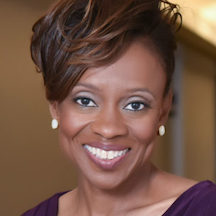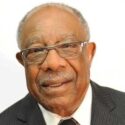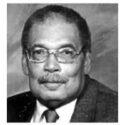A new study by researchers at Stanford University, the University of Waterloo, and the University of Illinois at Chicago finds that while people may treat African Americans with racial bias, they are also likely to devalue and demean places associated with African Americans.
In one experiment people were shown a picture of a home and asked to provide an assessment of its value. Half the participants were told the surrounding neighborhood was mostly Black and the other half were told the neighborhood was predominantly White. A house where people were told was in a White neighborhoods had an assessed value of $20,000 more than the same house but where people were told it was in a majority-Black neighborhood.
Another experiment asked participants to consider whether a plant producing hazardous chemicals should be built in a particular neighborhood. Those who were told the neighborhood was predominantly Black were more likely to recommend the plant be built than those who were told the neighborhood was largely White.
A third experiment showed prospective home buyers a house. Clues were given telling the prospective home buyers that the current owners were either Black or White. Home buyers were less likely to express interest in buying the house if it had been shown as currently owned by a Black family.
 Jennifer Eberhardt, professor of psychology at Stanford University and a co-author of the study, notes that “many studies document that Americans harbor biases against Black people. Ours are the first experiments to show that these biases extend to the physical spaces Black Americans inhabit. In other words, stereotypes drive not only how we treat people, but also how we treat places.”
Jennifer Eberhardt, professor of psychology at Stanford University and a co-author of the study, notes that “many studies document that Americans harbor biases against Black people. Ours are the first experiments to show that these biases extend to the physical spaces Black Americans inhabit. In other words, stereotypes drive not only how we treat people, but also how we treat places.”
Dr. Eberhardt has been affiliated with Stanford University since 1998. Previously, she taught at Yale University. Professor Eberhardt is a graduate of the University of Cincinnati. She holds a Ph.D. from Harvard University. In 2014, Dr. Eberhardt was named a MacArthur Fellow and earlier this year was elected into the National Academy of Sciences.
 Courtney Bonam, an assistant professor of psychology at the University of Illinois at Chicago and the study’s lead author, adds: “Together, these studies tell us that space-focused stereotypes may thus contribute to wide-ranging social problems, from racial disparities in wealth to the overexposure of Black people to environmental pollution. These studies also broaden the scope of traditional stereotyping research and can inform policymakers, urban planners, and the public about an insidious form of stereotyping that can perpetuate racial inequalities.”
Courtney Bonam, an assistant professor of psychology at the University of Illinois at Chicago and the study’s lead author, adds: “Together, these studies tell us that space-focused stereotypes may thus contribute to wide-ranging social problems, from racial disparities in wealth to the overexposure of Black people to environmental pollution. These studies also broaden the scope of traditional stereotyping research and can inform policymakers, urban planners, and the public about an insidious form of stereotyping that can perpetuate racial inequalities.”
Dr. Bonam is a graduate of the University of Michigan and holds a Ph.D. from Stanford University.
The study, “Polluting Black Space,” was published in the Journal of Experimental Psychology, General. It may be accessed here.












Studies like this one need to be taught in all of our schools at every level. In addition, all public policies need to be made keeping studies like this in mind.
It stems from the overall negative perception of the black image and the conditions of blacks across the country, which makes people generalize that everything associated with blackness, whether that be black churches, neighborhoods, businesses, etc, are seen as inferior. It hurts us even more when we do it to ourselves.
Black Americas comprise about 13 per cent of the US population and the percentage is no growing. To expect the non-black majority population to accept black people as an autonomous group and tolerate protests of mainstream culture is an an exercise in futility and self-defeating. Although the media tries to create this illusion that somehow black cultural tendencies are somehow equal to non-black, the reality is different. Non-black culture is not bases on the entertainment industry nor African cultural ties.
There should be no “black community”, this in and of itself is self-defeating. Black people that fully assimilate in the majority culture thrive, these are not the commonly publicized black people and organizations, but the people who have embraced the true ideals of Martin Luther King, King stressed the strength of the individual, he worked to instill in individuals the knowledge and confidence that they were as good as any other person, regardless and the same, not different or better.
Black people must insist on being recognized for being individuals, not some race that demands autonomy or special privilege. As individual black people succeed, they sweep away the biases and prejudices of the majority collectively. However they unfortunately have to stand up to the demagogues and parasites that feed on maintaining the misery of the “black community”.
You were born in the black race. That should be an irrelevancy in the United States and you should improve yourself and your condition as individuals, and not wait for the community. If that means leaving the community, you should do it, because the community will otherwise be a ball and chain on your leg.
Oddly, the black persons who have thrived in the US have almost all left the black community even though some still pretend they have not. They had to in order to thrive and find themselves. Its not about your color, but you. Don’t worry about what the majority thinks about your community. Think about what the majority thinks about you, and to do that you need to embrace the culture and values of the majority community.
Accept reality and like a sailing vessel moving against the wind, learn to tack, and you will find yourself going in a direction that you want to go, even it if takes a little longer than with the wind at your back.
I commend the authors for their study, but their findings are neither new nor surprising. Anyone with a strong background in American history knows that whites have always denigrated anything associated with black people.